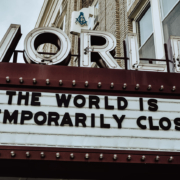The Motivation of Prize and Uncertainty
Innovation often serves as a boost to an economy. After all, it tends to be a driving force behind the creation of new markets and the growth of existing ones. But innovation isn’t something that can be bought and sold… or is it? If we look through historical examples a trend emerges; great innovation comes about as the result of an incentive or prize.
Consider these examples:
- Christopher Columbus finding the Americas – He was after the prize Spain offered for discovering a quicker route to the Indies for trade
- Charles Lindbergh’s transatlantic flight from New York to Paris in the Spirit of St Louis (Orteig Prize)
- Nicolas Appert’s development of modern food preservation/ canning (Napoleon’s food preservation prize)
- John Harrison’s invention of the marine chronometer (British Longitude Prize)
- Burt Rutan’s development of SpaceShipOne, the first reusable private space ship (Ansari X PRIZE)
I think these incentives work well because they appeal to four primary motivators: curiosity, fear, wealth and recognition.
- Curiosity – The weakest motivator of the four, curiosity is the desire to find out why. Curiosity often fuels scientific discovery, but is less powerful in other areas.
- Fear – Extraordinary fear enables extraordinary risk taking. Consider John F. Kennedy’s challenge for the space program driven by the fear of Soviets in space prior to America.
- Wealth – Entire industries are built on this motivator. From venture capitalists to the investment industry, wealth should go to those with brilliant ideas.
- Recognition – The most powerful motivator of the lot, recognition makes people feel like they’ve made a difference in the world, that their names will appear in the history books for their accomplishment. It’s a feeling that cannot be bought or sold, only earned.
Consider the SpaceShipOne for example. Look at the speed with which entrepreneurs innovated in their quest for a $10 million prize awarded to the first company capable of manned private spaceflight. They accomplished their goal in 2004 with only ten years between the first idea and actually doing it.
The X PRIZE Foundation didn’t stop there. Here are some of the other prizes they’ve overseen:
- The Ansari X Prize, the original X Prize competition to create a private spaceflight vehicle
- The Progressive Insurance Automotive X Prize, an engineering competition designed to create a fuel efficient clean car that gets 100 MPG
- The Archon Genomics X Prize, a genomics competition challenging teams to sequence 100 human genomes within 10 days or less
- The Google Lunar X Prize, a competition to put a robot on the moon
- The Northrop Grumman Lunar Lander X Challenge, a competition to build precise, efficient small rocket systems
- The Wendy Schmidt Oil Cleanup X Challenge, a competition to speed up the cleaning of seawater surface oil resulting from spillage from tankers, ocean platforms, and other sources
- The Qualcomm Tricorder X Prize, a competition to create a portable medical diagnostic device
So how can we use this method to boost the innovation in our economy, create jobs and spur growth?
I think the first step is to understand our uncertainty and tackle it head on. As with all things, uncertainty comes with a price tag. Like interest costs that accrue on borrowed money, uncertainty plagues capital that isn’t being used. There seems to be a negative accrual of uncertainty or an unrealized cost of money not being put to use. This delay has a real effect on the economy; the same way high interest rates can be associated with borrowed money.
The incentive needed to overcome uncertainty could be right below our noses. The problem is, we tend to sabotage ourselves. Between polarized political parties and a 24-hour news cycle, it’s easy to give into the uncertainty of it all. But when we focus on the reward – the prize at the end of the line, everything else becomes less distracting.
I doubt Lindbergh spent his time fretting over every bug that hit the windshield. Columbus put all his money on black when he set sail in the opposite direction. Yet they innovated by going against the grain – by succeeding when everyone thought they were crazy to even try.
Think about your incentive, your ultimate goal. It may not be to land on the moon or solve world hunger, but it may be all you need to refocus your efforts and brush aside the bugs hitting your windshield. If everyone in the U.S. would take a step back and consider their ultimate incentive, I think we’d go along way toward improving the economy.
Securities offered through LPL Financial. Member FINRA/SIPC
Sources:
LPL Research
https://en.wikipedia.org/wiki/X_Prize_Foundation
Abundance, Peter Diamandis and Steven Kotler









